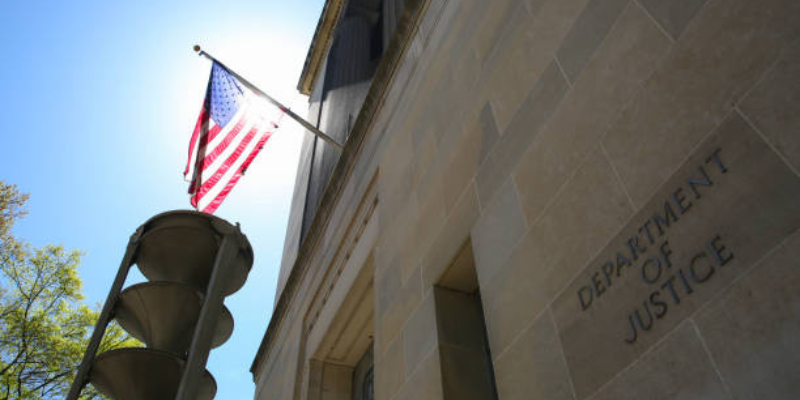BitMEX Admits Guilt To BSA Violations

The Bank Secrecy Act (BSA) has been violated by BitMEX, a well-known cryptocurrency exchange, as announced by the U.S. Department of Justice (DOJ).
TakeAway Points:
- BitMEX entered a guilty plea to breaking the Bank Secrecy Act by neglecting to put in place proper AML/KYC procedures between 2015 and 2020.
- Because the exchange permitted anonymous trading, there was a risk to the integrity of the financial system from money laundering and sanctions violations.
- Similar charges were brought against BitMEX’s co-founders and first employee; U.S. District Judge John G. Koeltl is currently deciding on the company’s sentence.
BitMEX Violated the Bank Secrecy Act
BitMEX, a prominent cryptocurrency exchange, has pleaded guilty to violating the Bank Secrecy Act (BSA), as announced by the U.S. Department of Justice (DOJ) on Wednesday. The Seychelles-based exchange admitted to willfully failing to implement adequate know-your-customer (KYC) and anti-money laundering (AML) programs from September 2015 to September 2020. This period coincides with charges from the Commodity Futures Trading Commission (CFTC) and the DOJ against BitMEX for offering illicit crypto derivative trading services to U.S. customers and violating the BSA.
During this time, BitMEX allowed customers to trade cryptocurrency anonymously without requiring any identifying information or documentation. The DOJ alleged that this lack of AML/KYC standards made BitMEX a hub for money laundering and sanctions violations.
“As BitMEX’s founders and long-time employee admitted in federal court in 2022, the company… operated in the United States without any meaningful anti-money laundering program, as required by federal law,” U.S. Attorney Damian Williams stated.
Legal Consequences
The charges against BitMEX’s co-founders Arthur Hayes, Samuel Reed, and Benjamin Delo, along with its first employee Gregory Dwyer, mirror the charges the company has now pleaded guilty to. All four executives had previously pleaded guilty to similar charges. Additionally, BitMEX admitted to lying to a foreign bank to open a bank account for a shell company, Shine Effort Inc. Limited, controlled by Delo.
The DOJ highlighted that BitMEX’s actions posed a significant threat to the integrity of the financial system. FBI acting Assistant Director in Charge Christie M. Curtis emphasized that BitMEX’s failure to comply with AML procedures, such as KYC components, allowed the exploitation of financial institutions and undermined the U.S. financial system’s integrity. The DOJ noted that BitMEX executives “took affirmative steps” to avoid complying with AML program requirements despite knowing their obligations.
Wider Implications
The report shows that the case against BitMEX underscores the importance of compliance with U.S. laws for cryptocurrency companies operating in the U.S. market. The DOJ’s actions against BitMEX and its executives serve as a warning to other crypto firms about the consequences of neglecting AML and KYC regulations. The CFTC had previously ordered BitMEX to pay a $100 million civil penalty for unlawfully accepting orders from U.S. customers and failing to implement a customer information program and KYC measures.
In a related development, Lithuania fined crypto company Payeer a record €9.3 million ($10.1 million) for sanctions and money laundering violations involving Russian clients. Payeer allowed Russian customers to conduct transactions in Russian rubles through EU-sanctioned Russian banks and provided cryptocurrency wallet, account management, or storage services to Russian individuals and entities. The fine, which can be appealed, reflects Lithuania’s efforts to prevent digital assets from being used for money laundering or swindling investors.





